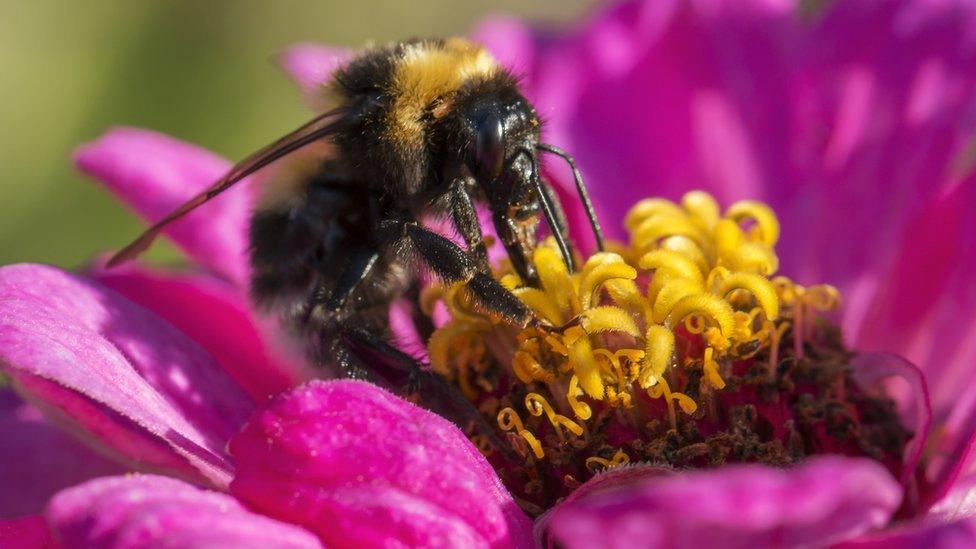The Great Yellow bumblebee has been spotted in Scotland
- Published
- comments

The Great Yellow bumblebee is distinguishable by its yellow and black stripes
The Great Yellow bumblebee is one of the UK's rarest bumblebees - but it's recently been spotted in Scotland!
Experts from the Bumblebee Conservation Trust discovered the endangered species in Caithness.
The conservationists were carrying out a survey in the area to try and find out where and how many live there - this information can then be used to advise landowners on how to recreate habitats for the insects.
Katy Malone, a Conservation Officer for the Trust said: "It's rare to be able to find any bumblebee nest in the UK, but to observe and film a Great Yellow bumblebee nest is astonishing."
The bees at one point were quite common and were found throughout the UK, however their population has declined by 80% in the last century (100 years).
Bees collect nectar to produce honey
Back in 2019, holidaymakers and people living there were asked to share their potential sightings as part of The Great Big Great Yellow Bumblebee Hunt.
After discovering the nests, Katy described it as a "once-in-a-lifetime moment and one I'll remember forever".
"Filming was just incredible. All was quiet when I arrived but soon bumbles appeared and began buzzing around the entrance," she added.
"I took my camera out and started filming immediately, keen to record the sights and sounds of this extremely rare find."
It is thought that bumblebees do not use the same nest each year because they have an annual lifecycle, however Katy is keen to return to the area to find any nests there again.
If you cannot see this interactivity on this page, click here.
Bees have an annual lifecycle, so it's thought that they do not return to the same nest again
Great Yellow bumblebees are now only found in five areas: Caithness, North West Sutherland, Orkney, the Inner Hebrides and the Outer Hebrides.
The species has been on the decline and is now classed as endangered. Scientists believe this is because of the loss of flower-rich meadows, mixed with grazing practices and a boost in farming.
- Published19 May 2020
- Published19 May 2020
- Published16 February 2021
- Published16 February 2021
- Published16 February 2021
